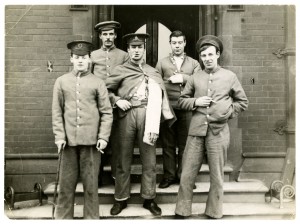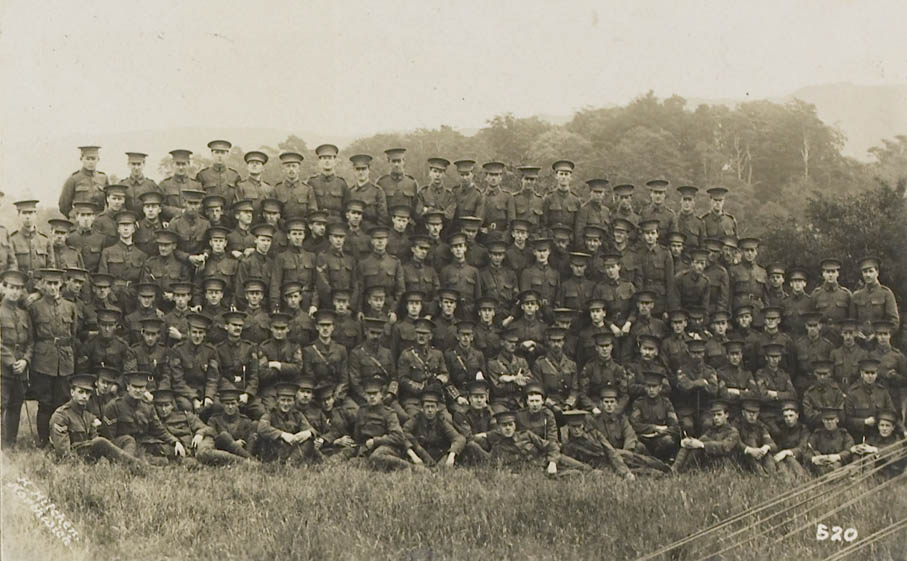Our new project to tell the lost stories of Newcastle and Durham University staff and students who fell during the First World War has been awarded a Heritage Lottery Fund (HLF) grant. Newcastle University and Durham University Library’s Special Collections are seeking volunteers in the region and beyond to help research the lives of mainly alumni who were unable to fulfil their potential.
Like heritage organisations across the country, we are marking the centenary with a programme of commemorations relating to our collections and the university’s role in the conflict. We are holding a series of exhibitions from 2014 – 2018, the first of which A Higher Purpose explored how the university became a military hospital; the 1st Northern General.
Universities at War itself came from another project based around the 223 names on the Armstrong Memorial in the foyer of the Armstrong Building. Often overlooked as part of the furnishings, our Head of Archaeology Dr Jane Webster sought to remedy this in 2011 through original research by undergraduate Sophie Anderton as part of her dissertation Small Sorrows Speak: Great Ones Are Silent. This piece of work, based around the University Archives, shone a light on many of the personal stories and provided the basis for further research by Archaeology students and library staff.
The Newcastle Institute for Social Renewal recognised the importance of making this research available to the widest possible audience, awarding the project a grant to create the initial Armstrong Memorial Digital Memory Book. This also included teaching resources aimed at schools into how to research war memorials, devised by our Education Outreach Officer Gillian Johnston. The site was launched in 2014 and the project was nominated for a Times Higher Education Leadership and Management Award (THELMA) in the same year.

The Armstrong Digital Memory Book on a kiosk in front of the memorial, with Library Systems Developer Scott Bradley, Archivist Ian Johnson, and Archaeology student Ben Howson
It now takes a prominent place on a kiosk in front of the memorial itself, providing context and personal depth to the names. This resource has also seen many descendants of the fallen and members of the public get in touch with more information, and it was this that sparked us and colleagues at Durham, already undertaking their own research on everyone that served, to team up and create a much more expansive picture.
However, the information we have, including the 53 fallen from our Medical College not yet represented, is incomplete. Further research into these important stories will be promoted through public events and an exhibition in 2017 showcasing the work of any volunteers who come forward. Both Universities will also work with local schools to help young people understand the local impact of the conflict and develop the skills to research their own memorials.
We are thrilled to have received the support of the Heritage Lottery Fund to engage the public in the important aim to make these fallen more than just names on a memorial. As many of these fallen were local and the commemorations have sparked everyone’s interest nationally, we know the experts are in our communities and we want them to get in touch to make this a success through credited contributions.
Ivor Crowther, Head of Heritage Lottery Fund North East, said:
“The impact of the First World War was far reaching, touching and shaping every corner of the UK and beyond. In this Centenary year we’re pleased to fund this project which will provide a truly personal link to the conflict and ensure the stories of Durham and Newcastle alumni are heard and remembered.”
Both universities invite anyone interested in learning more to an open event at Newcastle University’s Robinson Library at 6pm on 25th June. The work done so far is available to view both at the Armstrong Memorial Digital Memory Book and dur.ac.uk/library/asc/roll/. Anyone interested in joining the team are also welcome to get in touch through contact details available on these sites.




